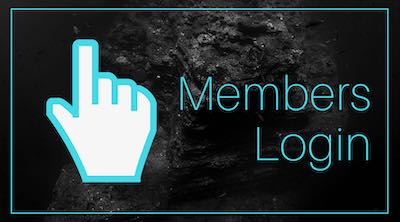As the world becomes increasingly digitized, the way we make online payments is changing. Bitcoin is a decentralized cryptocurrency that offers a secure, fast, and cheap way to make online payments. Here are thirteen reasons why Bitcoin is the future of online payments.
- It’s Fast
Traditional payment methods like credit cards and bank transfers can take days to process. Bitcoin transactions are typically confirmed within minutes due to the nature of blockchain technology. This makes Bitcoin an ideal payment method for online purchases, especially in situations where time is of the essence.
- It’s Cheap
Bitcoin transactions are relatively cheap compared to other payment methods. When you make a credit card payment, the merchant has to pay a processing fee to the credit card company. With Bitcoin, there are no middlemen or processing fees, so merchants can save money on transaction costs.
Fees for Bitcoin transactions are typically a fraction of a percent. For example, the average fee for a Bitcoin transaction is currently only $0.20. In comparison, the average fee for a credit card transaction is $0.30, and the average fee for a bank transfer is $25.
- It’s Global
Bitcoin is not subject to the same regulations as traditional payment methods like credit cards and bank transfers. This makes Bitcoin an ideal payment method for cross-border transactions. Additionally, because Bitcoin is not subject to currency conversion fees, it can be a more cost-effective option for international transactions.
- It’s Secured
Bitcoin uses cryptographic technologies to ensure that transactions are secure. Bitcoin’s security has two layers. First, the network of computers that verify transactions (known as miners) is decentralized and spread out all over the world. This makes it very difficult for anyone to tamper with the Bitcoin transaction record. Second, each Bitcoin transaction is encrypted with a unique digital signature that only the owner of that Bitcoin address can create. This makes it impossible to make counterfeit or “double-spend” Bitcoin.
- It’s Private
Traditional payment methods leave a paper trail that can be used to track your purchases. With Bitcoin, transactions are anonymous, so your personal information is not attached to your Bitcoin address. This makes Bitcoin a good choice for people who value their privacy.
- It’s Decentralized
Unlike traditional payment methods like credit cards and bank transfers, which financial institutions centrally control, Bitcoin is decentralized. This means that no single entity can control or manipulate the Bitcoin network. Bitcoin is thus resistant to fraud and censorship and provides users with more control over their own finances.
- It’s Censorship-Resistant
The decentralized nature of Bitcoin makes it very difficult for anyone to censor or block Bitcoin transactions. This is because there is no central authority controlling the Bitcoin network. Instead, it is spread out across a global network of computers, making it censorship-resistant. This makes Bitcoin an ideal payment method for people living in countries with repressive regimes where some traditional financial solutions are censored or can’t be reached.
- It’s Open-source
Bitcoin’s open-source nature allows the development community to constantly improve the protocol, making it a more robust and secure payment method. Additionally, the open-source nature of Bitcoin means that anyone can audit the code to ensure that there are no security vulnerabilities.
- It’s Transparent
The transparency of Bitcoin’s blockchain ledger also allows for more efficient dispute resolution. This is because all transactions are recorded on the public ledger, so it is easy to track where Bitcoin has been sent and received. If there is a dispute over a particular transaction, the parties involved can easily look up the information on the blockchain and resolve the issue. This makes Bitcoin a more efficient and transparent payment method than traditional payment methods like credit cards and bank transfers.
- It’s Trustless
Bitcoin’s trustless nature is one of its most important advantages. You have to trust that the other party will not commit fraud when using traditional payment methods. With Bitcoin, you can be your own bank. You can simply send and receive Bitcoin without worrying about someone else taking your money. This makes Bitcoin a more secure and convenient payment method than traditional methods.
- It’s Scarce
Bitcoin’s finite supply makes it a more scarce asset than fiat currencies, which can be created at will by central banks. This scarcity gives Bitcoin the potential to appreciate in value over time, making it a more attractive investment than fiat currencies. Additionally, the limited Bitcoin supply helps ensure that it is not subject to the same inflationary pressures as fiat currencies.
- It’s Resilient
The resilience of the Bitcoin network is one of its most important advantages. The decentralized nature of the blockchain makes it resistant to attack. If one part of the network goes down, the rest of the network can continue to function. This makes Bitcoin a very reliable payment method.
- It’s Emerging
The potential for Bitcoin to become a major player in the global economy is very real. As Bitcoin is still in its early stages of development, there is a lot of room for growth. With its many advantages, including decentralization, censorship resistance, transparency, and trustlessness, Bitcoin is well-positioned to become a leading payment method on a global scale.
Risks
While there are many advantages to using Bitcoin, there are also some risks:
- Volatility
One of the biggest risks is its volatility. The price of Bitcoin has been known to fluctuate rapidly, and this can make it difficult to use as a currency. If you are looking to use Bitcoin as a means of payment, you may want to wait for the price to stabilize.
- Hackers
Another risk is the threat of hacking. While the Bitcoin network is secure, there have been some instances of exchanges being hacked and user funds being stolen. If you are storing your Bitcoin on an exchange, you may want to consider storing them in a more secure wallet.
- Scams
There have also been some instances of scams related to the human factor when transferring Bitcoin. Be sure to research any company or individual before sending them any funds.
- Regulation
Another risk to consider is regulation. The regulatory landscape around Bitcoin is still very uncertain. This uncertainty could lead to more volatility in the price of Bitcoin and could make it more difficult to use as a payment method.
- Price manipulation
Another risk to consider is the possibility of price manipulation. Because the market for Bitcoin is still relatively small, it is susceptible to manipulation by large players. If the price of Bitcoin is being artificially manipulated, it could be difficult to use as a payment method.
Despite the risks, Bitcoin remains a very attractive option for payments and investment. The advantages of Bitcoin far outweigh the disadvantages.
Bitcoin and Businesses
As a business owner, you may be considering whether or not to accept Bitcoin as payment. There are many advantages to accepting Bitcoin, including the following:
- Reduced transaction fees
Bitcoin transactions have much lower fees than traditional credit card transactions. This can save you a significant amount of money, especially if you are a high-volume business.
- No chargebacks
Another advantage of Bitcoin is that it is not subject to chargebacks. This means that you will not have to deal with customers who attempt to fraudulently chargeback their purchase.
- International payments
Bitcoin can be used to accept payments from anywhere in the world easily. This is especially useful for businesses with international customers.
- Increased publicity
By accepting Bitcoin, you can increase the publicity of your business. This can lead to more customers and sales.
- Attracting tech-savvy customers
By accepting Bitcoin, you can attract tech-savvy customers who are looking for businesses that accept this new payment method.
How to Accept Bitcoin
If you decide to accept Bitcoin payments, there are a few things you need to do. First, you need to set up a Bitcoin wallet. There are many different types of wallets available, so be sure to choose one that is right for your business.
Second, you will need to find a payment processor that supports Bitcoin payments and integrate payments into your website. You can choose from one of several options, so make sure you compare their features and fees.
An easy way to accept crypto is through cryptocurrency merchant services. These are companies that provide payment processing for businesses that accept cryptocurrency payments. Some of these companies also provide a way to accept fiat currency payments, which can be helpful if you want to accept both. Many merchant services include customer care and refunds. This makes them an excellent choice for business owners that want to accept Bitcoin or other cryptocurrencies.
There are numerous merchant services available on the market. One of the best is B2BinPay, a leading cryptocurrency payment processor that enables businesses to accept Bitcoin, Ethereum, and other cryptocurrencies. B2BinPay also provides merchants with a platform for integrating crypto into their websites or online stores. It also provides customer service and refund policies. As a result, it is an excellent choice for businesses that want to receive Bitcoin payments.
Bitcoin is a very attractive option for payments and investment, despite the risks. There are many advantages to accepting Bitcoin, including lower transaction fees, no chargebacks, and the ability to attract tech-savvy customers if you are a business owner. If you decide to accept it, be sure to set up a Bitcoin wallet and find a payment processor that supports crypto payments. Bitcoin payment systems are also available to help you integrate Bitcoin payments into your website. Overall, Bitcoin is an excellent choice for companies looking for a new payment alternative.


















